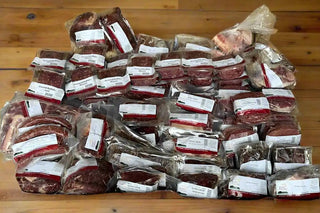In the past, the food we ate was simply food. Straight from the soil, the seas, or from the hands of local farmers, it needed no further authentication of its purity. Walking through a market, one would encounter an array of produce, meats, and grains, none of which bore labels, because everything was inherently "organic." However, with the industrialization of agriculture and the introduction of processed foods, this natural state of affairs shifted dramatically.
Today, walking through supermarket aisles, we're bombarded with labels and certifications. Among these, "organic" stands out—signifying that the food is, paradoxically, what food used to be. The advent of genetically modified organisms (GMOs), pesticides, and various synthetic additives has turned natural food into a niche market that requires certification and often comes with a higher price tag.
But why is this the case? Why do foods that adhere to age-old methods of farming and remain unaltered from their natural states need to prove themselves with labels, while modified foods are often presented as the norm? It seems a curious inversion of logic that the food most similar to what our ancestors would recognize requires certification to be trusted.
The proliferation of processed and genetically modified foods has introduced numerous health and environmental concerns, ranging from allergies and personal health issues to the broader impacts on biodiversity and ecological balance. Given these concerns, one might wonder why the burden of labeling doesn't fall on these 'altered' foods. Why not label the presence of GMOs, pesticides, or artificial additives prominently, making them the exception rather than the rule?
This question strikes at the heart of a larger debate about transparency and consumer rights. Advocates argue that reversing the labeling norm to highlight processed or GMO-containing products could foster greater awareness about what we are actually consuming and the potential risks associated with these products. Moreover, it could potentially restore organic foods to their original status—just food, no labels necessary.
In a world where we're increasingly detached from the origins of what's on our plate, perhaps it's time to reconsider which products warrant a closer look. Shouldn't the foods that are meddled with carry the caveat? As consumers, understanding the origin and makeup of our meals is more crucial than ever. It's not just about choosing between organic or conventional—it's about making informed choices regarding our health and the health of our planet.
As we move forward, fostering a food system where transparency is paramount could help shift consumer behavior and policy alike, ensuring that natural foods regain their rightful place at our tables, simply as food, with the "altered" options being the ones to state their case.
At Yankee Farmer's Market, we're committed to the principles that made food inherently trustworthy: simplicity and transparency. By choosing our meats, you're not just enjoying delicious, wholesome food—you're also supporting a return to the natural origins of agriculture, and even reaping additional benefits of ancestral diets I bet you never realized.
Taste the wild!



